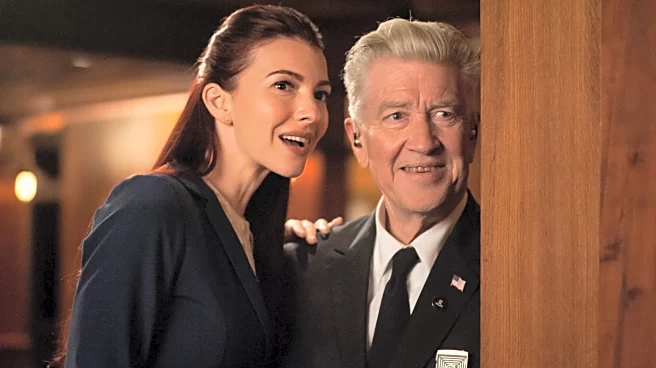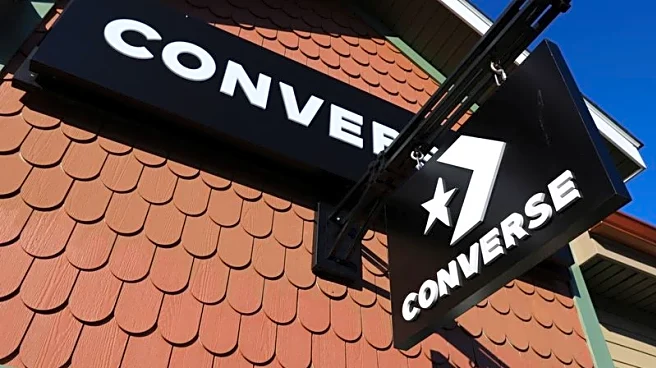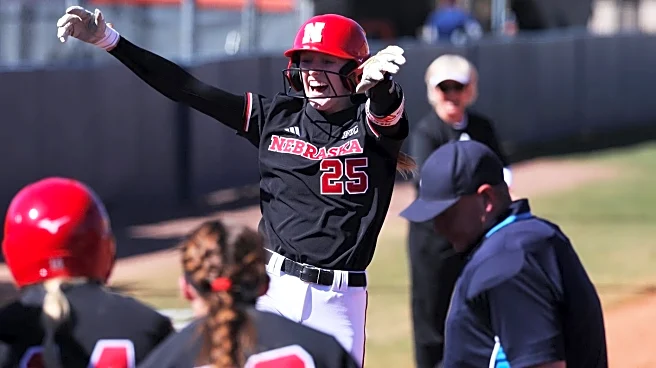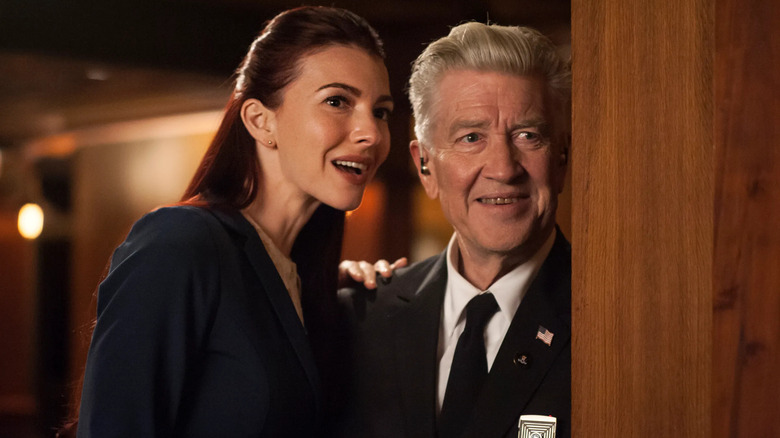
There are two types of people in this world: Those who think "Twin Peaks: The Return" is a TV show, and those who are wrong.
I kid, I kid! Well, sorta. Anyway, let's back up a minute for all you blessed
souls out there who haven't the foggiest what I'm blathering on about. The debate over whether Mark Frost and David Lynch's continuation of their equal parts darkly surreal and broadly absurdist 1990s mystery-horror TV drama should really be considered a movie has been quietly simmering since "The Return" aired on Showtime in 2017. No less an authority than the renowned publication Cahiers du Cinéma even declared it the best film of its decade in 2019, with "The Return" similarly tying for the 152nd place in Sight & Sound's 2022 critics poll for the best movies of all time. But why, exactly, are these prestigious outlets insisting that a season of a TV show spanning 18 episodes that initially aired over 16 weeks (with the first two and last two episodes clumped together) isn't, you know, a TV show?
No doubt, some of this can be chalked up to the (for my money, silly) prevailing attitude that film is a superior medium to television, which some people have stubbornly clung to as streaming has further blurred the lines between the two. It's also probably a response to comments made by Lynch himself, as he referred to "The Return" as being "an 18-hour movie" on more than one occasion. Unsurprisingly, though, that's because the late artist had (as was typical for him) an idiosyncratic yet thoughtful perspective on the whole film vs. television discussion, much more so than that soundbite would indicate.
"Television and cinema to me are exactly the same thing," as he explained at the Camerimage film festival screening of the first two episodes of "The Return" in 2017 (via Variety). "Telling a story with motion, pictures, and sound. It ended up being 18 hours." Yes, per usual, Lynch had a simple if somewhat enigmatic way of approaching the whole thing, and that extended to the one condition he had for making more "Twin Peaks" in the first place.
Read more: The 10 Best Actors On The Original Twilight Zone Series, Ranked
Lynch Would Only Make The Return For A Locked Budget With No Strict Episode Count
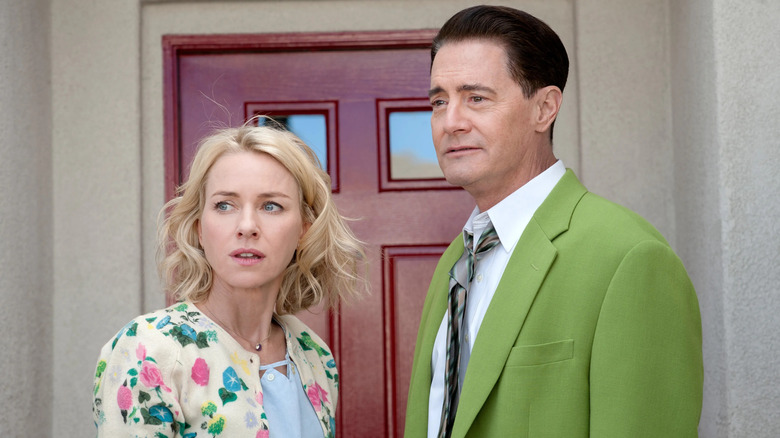
Lynch was known for being many things, but orthodox was not one of them. Whether he was teaming up with a cow to conduct a For Your Consideration campaign for his "Inland Empire" star (and frequent muse) Laura Dern or recounting mercurial anecdotes about his personal life (exactly what did go down between him and those Woody Woodpecker dolls, anyway?), the man went wherever his compass pointed him. So, once he and Frost decided they needed more than the nine episodes that Showtime had initially allotted for "Twin Peaks: The Return," Lynch wasn't afraid to step away from the project entirely when the premium network balked at the prospect. Putting his money where his mouth is, he very publicly quit the series on Twitter (or, as Bob calls it these days, "X") in 2015 after he and Showtime failed to see eye to eye on a budget.
In his 2018 memoir "Road to Dream" (which he co-authored with Kristine McKenna), Lynch recalled Showtime executives David Nevins and Gary Levine showing up at his home two days after his exit to resume talks ... and unlike every other guest he ever had, Mel Brooks included, Lynch didn't invite them to Bob's Big Boy to chat, so you know things were tense. Luckily for them, they had the foresight to bring cookies. In the end, the pair agreed that rather than once again trying to strong-arm Lynch, they would simply give him the locked budget he asked for and let him figure out the episode count on his own. As Nevin (who Lynch credited as being the -- no pun intended -- lynchpin behind the deal) stated at the Television Critics Association's fall previews that same year (via TV Guide):
"I don't know [how many episodes there will be]. They're going to decide. I expect it to be more than nine, but it's open-ended. I know what the shooting schedule is and then we'll have him cut into it however many episodes it feels best at."
Whether You Call It A Film Or TV Show, Twin Peaks: The Return Was An Event
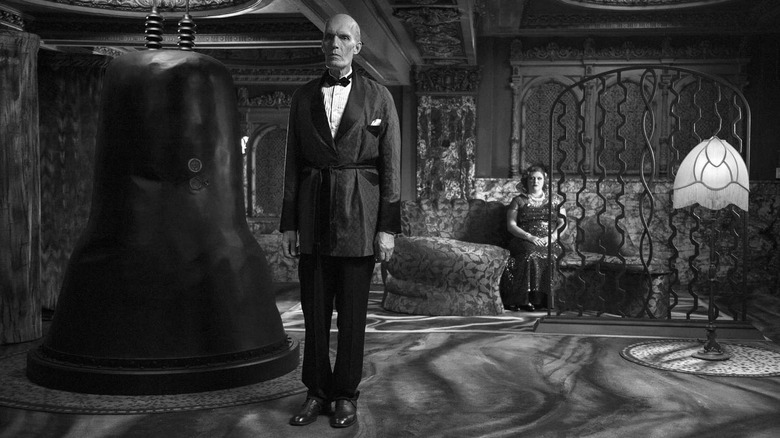
In a way, Showtime got something of a sweet deal; Lynch and Co. delivered twice as many episodes as the network had originally requested, but not necessarily at twice the cost. More than that, "Twin Peaks: The Return" was a true event for those who tuned in. Week in and week out, you never knew just what to expect. A peculiar odyssey through multiple dimensions? A descent into a largely wordless and often bizarrely disturbing black-and-white nightmare? A buddy adventure with Lynch's bumbling FBI deputy director Gordon Cole and his long-suffering Special Agent compatriot Albert Rosenfield (Miguel Ferrer)? "The Return" had all that and much more, even as it self-reflexively wrestled with concerns about nostalgia and the ways people can struggle to make their peace with the past (and even, in some cases, try to remake it).
But as much as any individual episode of "The Return" can feel like a short film, the show is very much structured like a series. Its weekly installments tend to conclude with a singer or band performing at Twin Peaks' go-to nighttime destination, The Roadhouse, while its overarching story is broken up into clear-cut chapters. You could watch the whole thing in one go, certainly, but it wouldn't feel like a single movie (even if, visually, it's as spectacular as any film Lynch ever made). Really, it seems almost tailor-made to be engaged with on a weekly basis, between its recurring elements (which risk coming off as repetitive during a binge watch) and the sheer amount of Lynchian weirdness it packs in.
In all fairness, I do see Lynch's point about not distinguishing between TV and film, all the more so in an era where so much non-cinema media is becoming more and more cinematic. But as Thomas Flight observes in his video essay "Why The Movies Will Never Feel The Same Again" (which is absolutely worth a look whenever you've got an hour to spare), embracing what makes film and TV distinct could also be the key to keeping both of them culturally relevant, as opposed to leaning into the notion that one is "better" than other mediums (deliberately or otherwise). Or, to borrow a turn of phrase from Lynch himself, keep your eye on the donut, not the hole.
If you're looking for the easiest way to keep up with all the major movie and TV news, why not sign up to our free newsletter?
Read the original article on SlashFilm.
